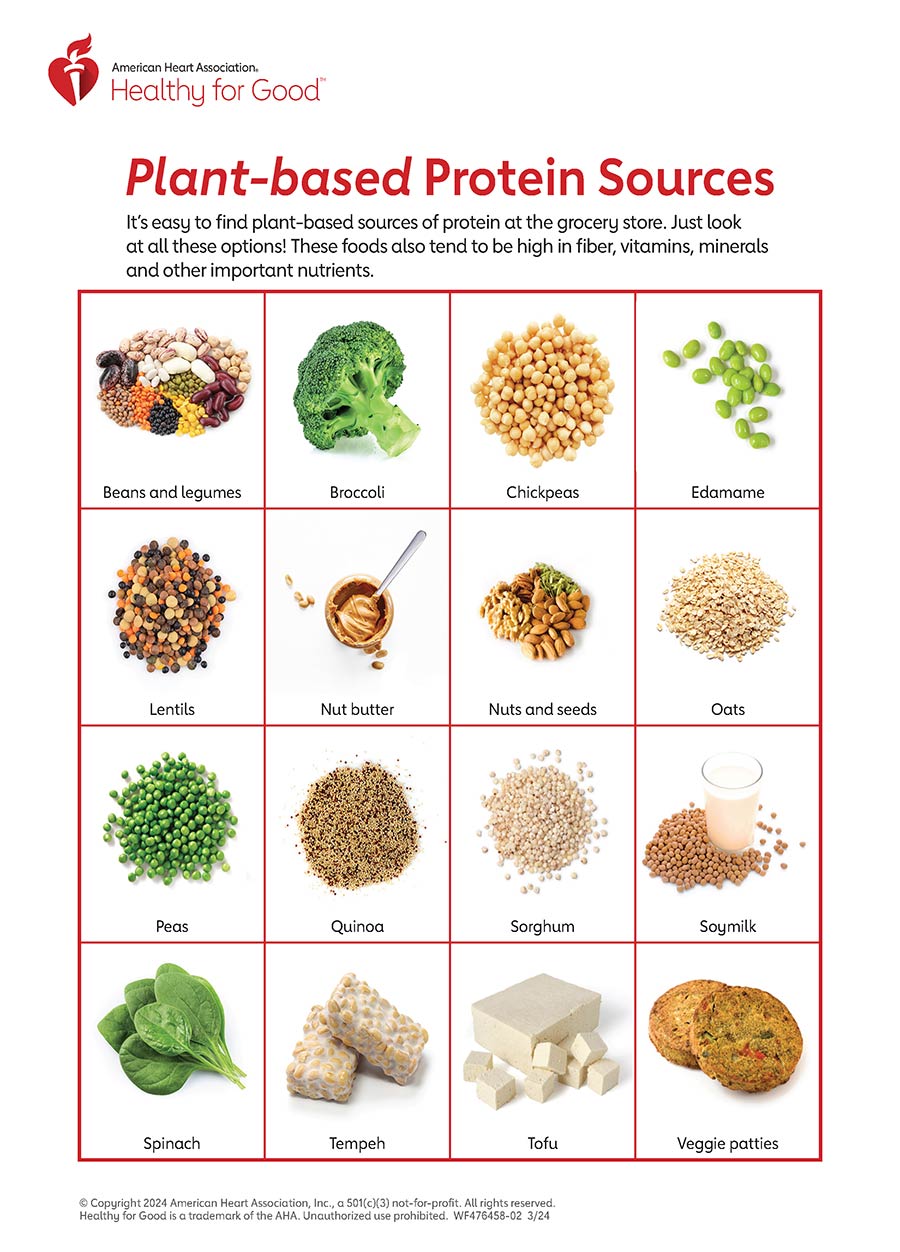What Makes Plant Based Chicken the Go-To Protein for Health Enthusiasts?
What Makes Plant Based Chicken the Go-To Protein for Health Enthusiasts?
Blog Article
All About Healthy And Balanced Food: Advantages of Enjoying Plant Based Choices
The conversation surrounding plant-based diet plans has obtained significant focus over the last few years. Several people are discovering the possible health and wellness advantages, nutritional advantages, and environmental effects connected with these nutritional selections. As individuals come to be more familiar with their food's influence on wellness and sustainability, inquiries arise regarding the functionalities of adopting such a way of life. What specific changes can one anticipate, and how might these options improve not only personal health and wellness but likewise the earth's future?
Understanding Plant-Based Diet Plans
Numerous individuals connect plant-based diets generally with vegetarianism or veganism, these diet regimens can incorporate a broad array of eating patterns that prioritize whole, minimally refined plant foods. Such diets frequently include fruits, veggies, entire grains, beans, seeds, and nuts, while restricting or eliminating pet items. This flexibility permits people to customize their nutritional options according to personal preferences and dietary demands. Some may take on a largely plant-based diet plan while still sometimes consuming meat or dairy products, usually referred to as a flexitarian strategy. The emphasis stays on incorporating even more plant foods, which can cause a diverse selection of meals and tastes. Understanding these different interpretations of plant-based eating is essential for appreciating its ease of access and appeal in contemporary food culture.
Wellness Benefits of Plant-Based Foods
The health and wellness benefits of plant-based foods are significant, offering a nutrient thickness advantage that supports general health. Study indicates that these foods can boost heart health and play an important role in efficient weight monitoring. By incorporating much more plant-based alternatives, people might improve their nutritional selections and promote long-lasting health.
Nutrient Thickness Advantage
Nutrient thickness plays a crucial function in the health advantages of plant-based foods, making them an engaging option for those looking for a balanced diet. Plant-based foods, such as fruits, veggies, vegetables, nuts, and whole grains, are frequently abundant in important vitamins, minerals, and antioxidants while being reduced in calories. This high nutrient thickness enables people to eat less calories while still fulfilling their dietary requirements. In addition, these foods are packed with nutritional fiber, promoting digestive system wellness and aiding in weight management. By incorporating nutrient-dense plant-based choices, customers can enhance their overall health, support their immune systems, and lower the threat of persistent diseases. Eventually, the nutrient density of plant-based foods underscores their value in a health-conscious way of life.
Heart Health Improvement

Weight Administration Support
Along with promoting heart health, a plant-based diet can significantly help in weight administration. This nutritional approach highlights entire foods such as fruits, vegetables, vegetables, nuts, and whole grains, which are typically lower in calories and greater in fiber contrasted to animal-based items. The high fiber web content aids boost satiety, reducing general calorie intake. Additionally, plant-based diets are typically rich in necessary nutrients while low in unhealthy fats, making it less complicated to maintain a healthy weight. Gluten Free BBQ Sauce. Research indicates that individuals that adopt a plant-based way of living tend to have lower body mass indexes (BMIs) and experience more effective weight reduction compared to those who eat meat-heavy diets. As a result, accepting plant-based options is a tactical choice for efficient weight administration
Nutritional Worth of Plant-Based Active Ingredients
Plant-based active ingredients are abundant in important nutrients, offering a diverse variety of vitamins, minerals, and anti-oxidants that add to total health and wellness. A comparison of healthy protein sources exposes that while pet products are frequently considered their website as superior, numerous plant-based options offer ample healthy protein and various other beneficial compounds. Recognizing the nutritional worth of these active ingredients can aid people make notified dietary options.
Essential Nutrients in Plants
Nutrient-rich ingredients located in plants provide a diverse selection of vital vitamins and minerals that contribute substantially to overall health and wellness. These components are rich in vitamins A, C, and K, which sustain immune function, vision, and blood clotting, respectively. Additionally, plants supply important minerals such as potassium, calcium, and magnesium, essential for heart health and wellness, muscle mass function, and bone toughness. The existence of fiber in plant-based foods help food digestion and advertises a healthy digestive tract microbiome. Antioxidants, located generously in vegetables and fruits, aid combat oxidative anxiety and decrease swelling. Furthermore, numerous plant foods are reduced in calories yet high in nutrients, making them an exceptional selection for those seeking to preserve a healthy weight while guaranteeing perfect nutrient consumption.
Comparing Healthy Protein Sources
Healthy protein resources differ substantially in their dietary profiles, with plant-based components supplying one-of-a-kind benefits. Unlike animal proteins, which often have saturated fats and cholesterol, plant proteins tend to be lower in these undesirable components. Legumes, nuts, seeds, and whole grains are abundant in important amino acids, fiber, vitamins, and minerals. Lentils give high healthy protein web content alongside More Help significant iron and folate, while quinoa is a full protein, using all nine essential amino acids. Additionally, plant-based healthy proteins are frequently accompanied by antioxidants and phytochemicals that sustain total health and wellness. The shift to plant-based healthy protein resources not only enhances nutritional intake yet likewise lines up with lasting dietary methods, decreasing environmental influence and advertising long-lasting health and wellness advantages.
Ecological Impact of Plant-Based Eating
As awareness of environment modification grows, lots of people are checking out sustainable nutritional options that can considerably minimize their environmental impact. Plant-based consuming has actually become a substantial contributor to minimizing greenhouse gas exhausts, which are primarily associated with livestock manufacturing. The cultivation of fruits, vegetables, grains, and vegetables commonly requires less resources, such as water and land, compared to animal farming. Additionally, plant-based diet regimens can lead to decreased logging, as much less land is required for grazing animals or growing pet feed. By shifting in the direction of plant-based options, customers can sustain biodiversity and advertise much healthier communities. Overall, embracing plant-based consuming not only benefits personal health and wellness however additionally stands for an important step toward ecological sustainability and conservation efforts.
Conquering Common Misconceptions
While several people acknowledge the advantages of a plant-based diet regimen, several misunderstandings often deter them from completely welcoming this way of life. A common idea is that plant-based diets lack sufficient protein; nevertheless, various plant resources, such as beans, nuts, and tofu, provide sufficient healthy protein. Additionally, some assume that this diet is expensive, when in truth, staples like beans, rice, and seasonal vegetables can be rather economical. One more false impression is that plant-based consuming is overly restrictive, whereas it in fact supplies a diverse range of foods and flavors. Lastly, Check Out Your URL numerous worry that a plant-based diet regimen may cause shortages, yet with appropriate preparation, people can acquire all needed nutrients, including minerals and vitamins, while delighting in a wide array of delicious dishes.
Tips for Transitioning to a Plant-Based Way of living
Making the shift to a plant-based lifestyle can be an enhancing experience, though it frequently requires some guidance to navigate the first adjustments. First, people are urged to start gradually, integrating even more fruits, veggies, legumes, and whole grains into their meals while minimizing meat and milk consumption. Meal preparation is essential; preparing a regular food selection can help alleviate the adjustment and protect against last-minute harmful choices. Exploring brand-new recipes and cooking techniques can likewise keep and improve the experience enjoyment concerning plant-based eating. In addition, joining support system or neighborhoods can give inspiration and share valuable suggestions. Remaining notified about nourishment guarantees balanced meals, preventing shortages while fostering a healthy, enjoyable plant-based way of living.

Delicious Plant-Based Dish Concepts
Exploring delicious plant-based meal concepts can motivate individuals to embrace a much more nourishing diet plan. One preferred choice is a hearty quinoa salad, including cherry tomatoes, cucumber, and a vibrant lemon-tahini clothing. One more fave is a savory lentil stew, packed with carrots, celery, and great smelling natural herbs, ideal for a soothing supper. For breakfast, over night oats made with almond milk, chia seeds, and covered with fresh berries provide a nutritious beginning to the day. Additionally, a dynamic veggie stir-fry with tofu and a range of vibrant veggies can be a fast yet pleasing meal. Finally, velvety avocado salute on whole-grain bread, sprayed with seasonings and seeds, supplies a straightforward yet delicious treat. These dishes showcase the selection and splendor of plant-based eating.

Regularly Asked Questions
Can a Plant-Based Diet Plan Give Enough Protein?
The inquiry of whether a plant-based diet plan can offer enough healthy protein prevails. Various resources, including beans, nuts, seeds, and entire grains, can meet healthy protein requires properly, sustaining a well balanced and nourishing diet plan for people.
Are Plant-Based Diets Suitable for Kid?
The viability of plant-based diet plans for kids relies on careful planning. Adequate nutrients need to be ensured, including minerals, vitamins, and healthy proteins. With proper assistance, such diet regimens can sustain healthy and balanced development and development in children.
How Do I Dine Out on a Plant-Based Diet plan?
Eating in restaurants on a plant-based diet plan includes seeking dining establishments with diverse food selections, requesting for alterations, and checking out vegan-friendly choices. Preparation in advance and communicating nutritional choices can boost the eating experience while keeping nutritional choices.
What Are Typical Irritants in Plant-Based Foods?
Typical irritants in plant-based foods consist of soy, gluten, nuts, and seeds - Gluten Free BBQ Sauce. People following a plant-based diet must recognize these allergens and check out tags carefully to avoid adverse reactions and guarantee safe intake
Can Plant-Based Diets Assist With Fat Burning?
Research study suggests that taking on a plant-based diet plan may promote weight loss as a result of its normally lower calorie density and higher fiber material. This mix can enhance satiety, helping individuals handle their caloric consumption properly. Numerous people associate plant-based diets mainly with vegetarianism or veganism, these diet plans can include a vast range of consuming patterns that prioritize entire, minimally refined plant foods. Nutrient thickness plays an essential duty in the health and wellness benefits of plant-based foods, making them a compelling option for those looking for a well balanced diet. Plant-based diet regimens have been shown to substantially boost heart health and wellness, as they commonly contain aspects that sustain cardiovascular function. In addition to advertising heart health, a plant-based diet plan can considerably help in weight administration. A common idea is that plant-based diet regimens do not have sufficient healthy protein; nonetheless, various plant sources, such as vegetables, nuts, and tofu, supply sufficient healthy protein.
Report this page